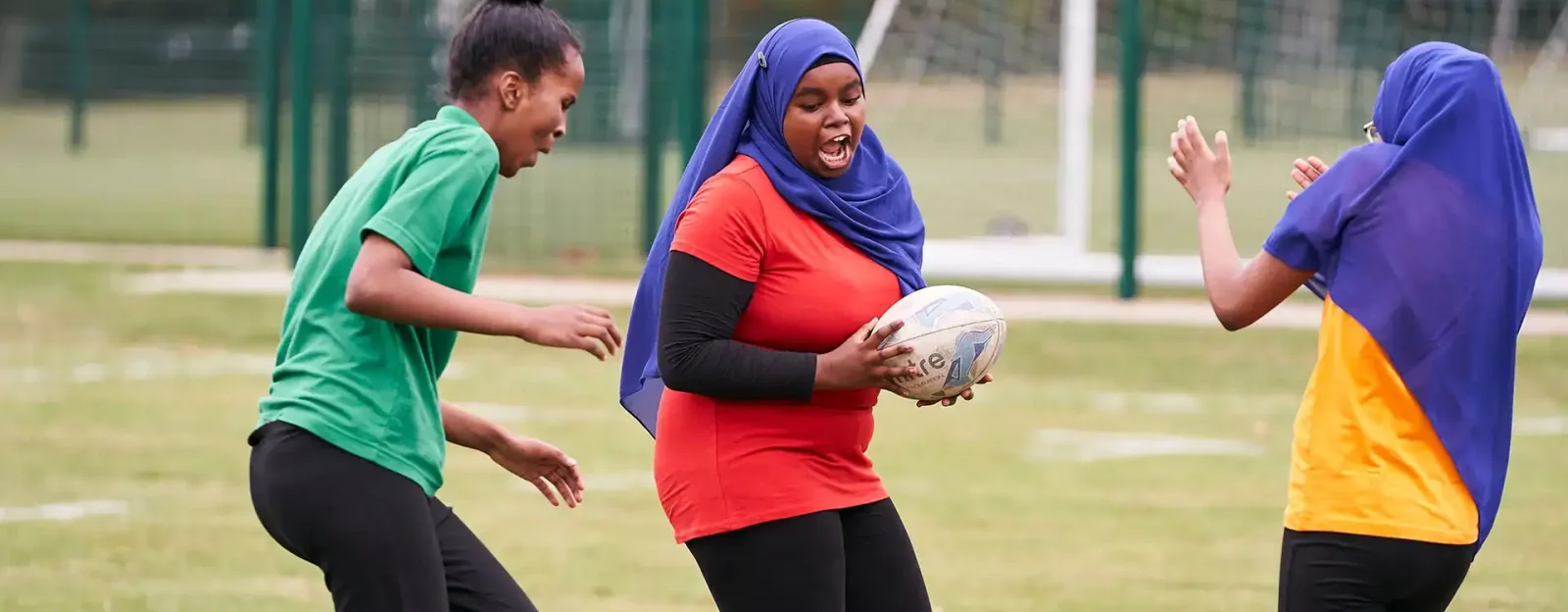Sports Development Officer
Also known as; Community sports officer, sport and physical activity coordinator, Sport specific development officer e.g. gymnastics development officer
A sports development officer is responsible for promoting participation in sport and physical activity across communities. Their goal is to increase access, engagement, and performance in sports – from grassroots to elite levels.
The role of a sports development officer aligns to the CIMSPA Entry Manager occupational professional standard.
What could I earn as a Sports Development Officer?
Your earnings will depend on the hours you work, your location, level of experience and whether you are employed or self-employed. To give you an idea, the data presented reflects the earnings listed in job advertisements across the UK from January to December 2024, as gathered via Lightcast (March 2025). Average annual earnings reflect full-time roles (>32hours/week), however average hourly earnings are a reflection of data collected from full-time, part-time and flexible hours vacancies.
Average UK earnings
Avg. annual earnings
Avg. hourly earnings
total job postings
Working hours are typically 9 am to 5 pm, Monday to Friday, with some evening and weekend work as needed.
83% of sports development officer job adverts are hiring for full time positions.

What does a Sports Development Officer do?
Key responsibilities of a sports development officer include:
Promoting Participation
-
Organise and deliver sports programmes for schools, communities, and clubs.
-
Encourage underrepresented groups (e.g. women, disabled people, ethnic minorities) to get involved.
-
Lead campaigns to raise awareness of the health benefits of physical activity.
Planning and Coordination
-
Develop strategies to increase participation in sport.
-
Work in partnership with schools, clubs, local authorities, health services, and national governing bodies.
-
Assist in setting up local sporting initiatives, leagues, and events.
Coach and Volunteer Development
-
Train and support coaches and volunteers.
-
Organise workshops, accredited courses, and mentoring programmes.
Monitoring and Evaluation
-
Evaluate the success of programmes (e.g. participation rates, long-term impact).
-
Report findings to stakeholders and funding bodies.
Securing Funding
-
Apply for grants or sponsorship to support new or ongoing projects.
-
Manage budgets and ensure programmes are delivered in a cost-effective manner.
Skills and behaviours
The following common or transferable skills are most frequently asked for by employers in sports development job adverts across the UK:
| Skills and behaviours | % prevalence in job adverts |
|---|---|
| Coaching | 29% |
| Communication | 27% |
| Management | 26% |
| Planning | 22% |
| Training And Development | 16% |
| Customer Service | 9% |
| English Language | 9% |
| Interpersonal Communications | 9% |
| Presentations | 9% |
| Self-Motivation | 8% |
How to become a Sports Development Officer
To become a sports development officer, there isn’t one set qualification route. Most employers look for a mix of education, experience, and skills related to working in the sport and physical activity sector.
College or university
Many sports development officers hold a college qualification or university degree in a sport and physical activity related subject such as:
- Sports coaching and development
- Fitness, health and exercise
- Sports coaching and performance
- Sports science
Some universities have built content into their courses that matches the Entry Manager occupational standard. The sports development officer role falls under this standard.
In the CIMSPA endorsed training directory, you can check what courses our partner colleges and universities offer as well as course entry requirements, a summary of course content/material and more information on how to apply.
Relevant experience, skills and knowledge
If you’ve done a similar job before, or have the right skills and knowledge, you could apply to be a sports development officer. For jobs that are sport specific (for example, working for a sporting National Governing Body (NGB)), expertise or a strong understanding of that sport is often desirable.
Apprenticeship
You can complete an apprenticeship to gain skills to become a sports development officer such as:
- (England) Find out more about completing a community activator coach (level 2) apprenticeship here
- (England) Find out more about completing a community and health officer (Level 3) apprenticeship here
- (Scotland) Find out more about completing a modern apprenticeship in Active Leisure, Learning and Wellbeing here
Professional Standards
CIMSPA is the guardian of a single professional and apprenticeship standards framework for the sport and physical activity sector – outlining the minimum knowledge, skills and behaviours an individual must understand and demonstrate for every occupation and job role in the sector.
This standards framework is driving the development of quality education products for our workforce and supporting employers in assessing which job roles an individual is qualified for.
Sports Development Officer Courses and qualifications
What's the best role for you?
Check out the Training Accademy
Career paths and progression
Career pathways
Side Steps
Aspirational Steps
Career progression
Career progression
As well as exploring new career pathways, as a sports development officer, you can also choose to progress your career by completing further training or continued professional development (CPD) in your role. This training can be added to enable sports development officers to show their expertise in additional populations, in different environments and with technical specialisms.
Examples of specialisms that may be added are:
- Working with children
- Working inclusively (working with disabled people)
- Working in the school environment
Find a job as a Sports Development Officer
The content of the job posts displayed on the CIMSPA jobs board are pulled in through feeds from websites which are not under the control of CIMSPA.
CIMSPA will not be liable for any false, inaccurate, inappropriate or incomplete information presented on the jobs board.